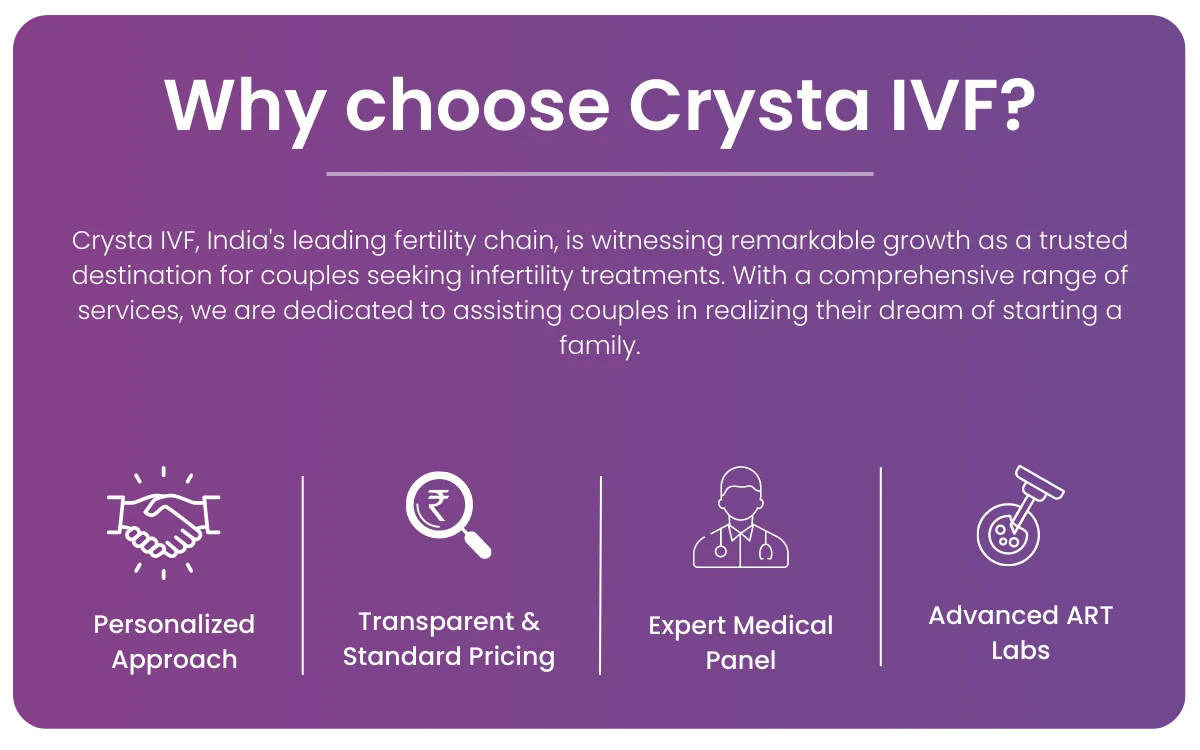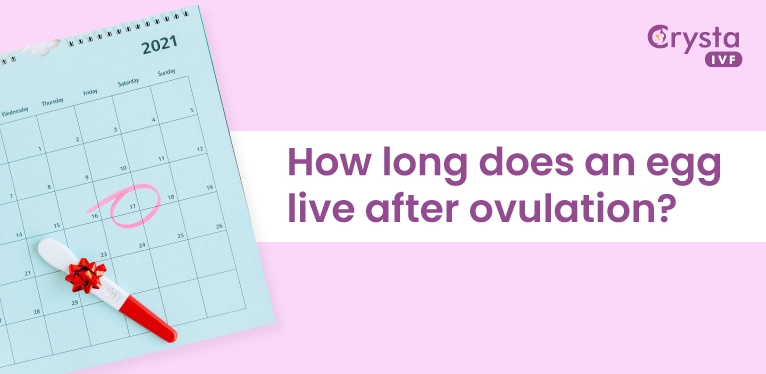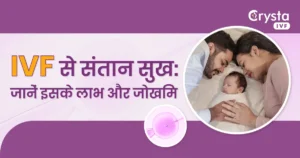Did you know? Once an egg is released during ovulation, it only has a short window to be fertilised! Understanding how long an egg survives in the uterus is important if you’re trying to conceive or simply want to know more about your body. In most cases, an egg stays alive for just 12 to 24 hours after ovulation. If it isn’t fertilised in that time, it naturally dissolves and leaves the body.
Also Read: Symptoms of Failed Implantation of Fertilized Egg
In this blog, we’ll walk you through everything you need to know about the lifespan of an egg after ovulation. Let’s uncover the facts you really need to know!
What Does Ovulation Mean?
Ovulation is the release of an egg from a female ovary into its fallopian tube. The process of ovulation begins around 13-15 days before the commencement of each menstrual cycle. It is a once-a-month occurrence for females who are planning to have a baby.
It is important to know that egg release is not a spontaneous occurrence. There are varied factors that take place before ovulation. A follicle in one of the ovaries begins to mature around 6 days and 14 days of the menstrual cycle.
An egg begins to grow from one of the follicles around 10-14 days. Once it is done, then the egg release begins from the ovary on the 14th day.
What happens during ovulation every month?
Ovulation is the peak time during which an ovum or egg is released from the ovary and precedes towards the fallopian tube. Well, here is a guide on what exactly happens after ovulation every month:
- During the ovulation process every month, there is the release of usually one egg from the ovary.
- However, some females release more than one egg within 24 hours.
- This egg is carried by fluid in a female’s body that passes through the fallopian tube.
- The mature egg is prepared for fertilisation after ovulation in the fallopian tube, which results in conception.
- If the egg is not fertilised, it reaches the uterus and gets discarded with your period blood.
However, some women have certain misconceptions about ovulation. Some women don’t comprehend the role of ovulation in achieving pregnancy and hence believe that they can become pregnant anytime they want.
Well, the case is not so. The reality is different because women are fertile for some days in a month, which is around ovulation time.
How Many Days is an Egg Viable After Ovulation?
The release of the egg from its follicle occurs within minutes or hours of ovulation. The egg is viable only for 12 to 24 hours after ovulation to be fertilised by a sperm.
It is thought to be ideal to have the sperm waiting in the fallopian tubes prior to ovulation since the fertility window is determined by both the sperm’s and the egg’s viability and because the sperm can survive inside the female reproductive organs for roughly five days.
It raises the likelihood that it will be fertilised and result in a healthy pregnancy. The quickest sperm may reach the egg within 30 minutes if you have intercourse shortly after ovulation. The sperm has enough time to capture the egg before it loses its viability for pregnancy.
How Many Days does an Egg Stay in the Uterus?
Technically, the egg doesn’t stay long in the uterus unless it is fertilised.
- After ovulation, the egg travels down the fallopian tube toward the uterus.
- If fertilised, it reaches the uterus in about 5–6 days and implants there.
- If not fertilised, the egg breaks down within 24 hours and doesn’t remain in the uterus; it gets absorbed and removed naturally during your period.
How Long Does Ovulation Last Each Month?
As discussed above, the ovulation period lasts for around 24 hours every month. Once the egg is released from the ovary, it is ready to be fertilised within 24 hours, otherwise, it will die or dissolve.
But don’t worry! It doesn’t mean you only have 24 hours for a positive pregnancy.
The sperm cells are more resilient than your egg and can survive for as long as five days inside your body and continue to fertilise an egg. Therefore, your fertile window is more like 5-6 days in any given month, rather than the brief period of time given to the egg.
You still have a decent possibility of becoming pregnant if you engage in sexual activity on the day of ovulation or in the days leading up to it.
Expert Advice: It is highly suggested that you track your menstrual cycle to get the date of your ovulation and undergo intercourse 1-2 days before your ovulation to increase the chances of conception.
Tips to Boost Your Chances of Getting Pregnant
Knowing roughly when you are going to ovulate is still necessary for a successful attempt at conception. This can be accomplished in several ways:
- Maintain a Journal:
The basic diary method entails recording the dates on which your menstruation begins each month. You can then determine the length of your cycle if it is regular. Knowing when your next cycle is expected to begin will allow you to go backwards and determine your ovulation date by deducting 14 days from that date.
- Purchase an Ovulation Tracker:
Most pharmacies sell ovulation tracker kits, which detect the rise in luteinizing hormone (LH) that happens right before ovulation. To see the increase, you need to take the test for a few days in a row.
- Examine the Cervical Mucus:
Examining the calibre of your vaginal discharge is part of the cervical mucus technique. It becomes transparent, thin, and stringy, like egg white, when ovulation is due. This makes it easier for sperm to move in the direction of the egg, making it the perfect time for sexual activity.
- Measure Your Temperature:
This approach necessitates preparation. Your basal body temperature rises by about 0.3ºC after ovulation due to the increase in progesterone. You can tell when you’ve ovulated because of a slight increase in temperature. To determine your basal body temperature, you must take readings each morning before getting out of bed.
Learn more: Fertility-friendly lifestyle tips for women
What are the Signs of Ovulation?
It entirely depends on the woman’s physiology, some females begin to ovulate without experiencing any major changes in the body, but others can notice the ovulation signs.
If you are unaware of the signs of when you are ovulating, then here are the signs of ovulation:
- One of the main signs is changes in the cervical fluid:
If you observe any cervical discharge or fluid, it is a clear indication that the ovulation period will begin within a few days. It can be very clear, stringy, stretchy, and wet. It may look like egg whites.
- Change in the basal body temperature is another noticeable sign of the ovulation period:
It involves the temperature while you are resting. You will notice that your body temperature is rising when you are ovulating. The only issue is that women don’t have to come across the high temperature until two or three days later.
- Other Signs of Ovulation:
Certain other signs of ovulation include cramping, sore breasts, bloating, and a high sex drive.
What are the Factors Preventing Ovulation?
Certain factors are responsible for preventing ovulation at the right time. Some of them are:
- PCOS: It is a condition where women’s sex hormones, such as estrogen and progesterone, are not balanced. Also, PCOS leads to severe problems with a woman’s menstrual cycle, cardiac functionality, fertility, and appearance.
- Underactive Thyroid: It results in the issue of premature menopause.
- Extreme Stress: Women who experience different stress levels also don’t ovulate.
So, you need to get in touch with a fertility clinic in Lucknow like Crysta IVF if you are facing the problem of conceiving, or you aren’t ovulating.
Also Read: 7 Tips For Choosing An Egg Donor In IVF
The Bottom Line
The only key to family planning is understanding the menstrual cycle and how ovulation works. Ovulation takes place once a month and lasts around 24 hours. It means that if the egg is not fertilised, it will die.
Hence, you need to keep track of your fertility days and improving the probabilities of conceiving.

Frequently Asked Questions
1. How long does an egg live after ovulation?
An egg usually lives for 12 to 24 hours after ovulation. Once an egg is released from the ovary, it waits for sperm to fertilise it. If no sperm meets the egg within this short window, the egg disintegrates and pregnancy won’t happen.
2. How long does the egg stay in the fallopian tube?
The egg stays in the fallopian tube for about 12 to 24 hours after ovulation. During this time, it travels down the tube toward the uterus. If it meets sperm, fertilisation can happen in the tube itself.
3. How many days after ovulation can you get pregnant?
You can get pregnant within 24 hours after ovulation if the egg is fertilised. Since the egg survives only about a day, the chances of pregnancy are highest within a few hours after ovulation. Sperm can survive up to 5 days inside you, so timing intercourse before ovulation is also important.
4. What are the Signs that ovulation is over?
Signs ovulation is over include:
- Cervical mucus becomes dry or sticky
- Basal body temperature rises
- Breast tenderness reduces
- Ovulation pain (if any) stops
5. How many days after your period do you ovulate?
Most women ovulate about 14 days before their next period. If you have a regular 28-day cycle, ovulation typically happens around day 14 (counting from the first day of your period). But if your cycle is longer or shorter, ovulation timing changes too.
6. Can you get pregnant 3 days after ovulation?
Yes, it’s less likely but possible within a short window after ovulation. Because the egg usually survives just 24 hours, getting pregnant 3 days after ovulation is rare. However, sperm can stay alive for days, so timing before ovulation matters more.
7. Can an egg live 48 hours after ovulation?
In most cases, no, the egg survives only up to 24 hours after ovulation. It’s very rare for an egg to live 48 hours. That’s why timing intercourse close to ovulation is important for pregnancy.
8. How many days after ovulation are you least fertile?
You are least fertile 2-3 days after ovulation. After the egg disintegrates, pregnancy chances drop almost to zero. The rest of the cycle is considered a low-fertility phase until your next ovulation.
Continue Reading:
Early Pregnancy Detection in IVF
Female Infertility Treatment in India, Causes, Testing Process & Cost




